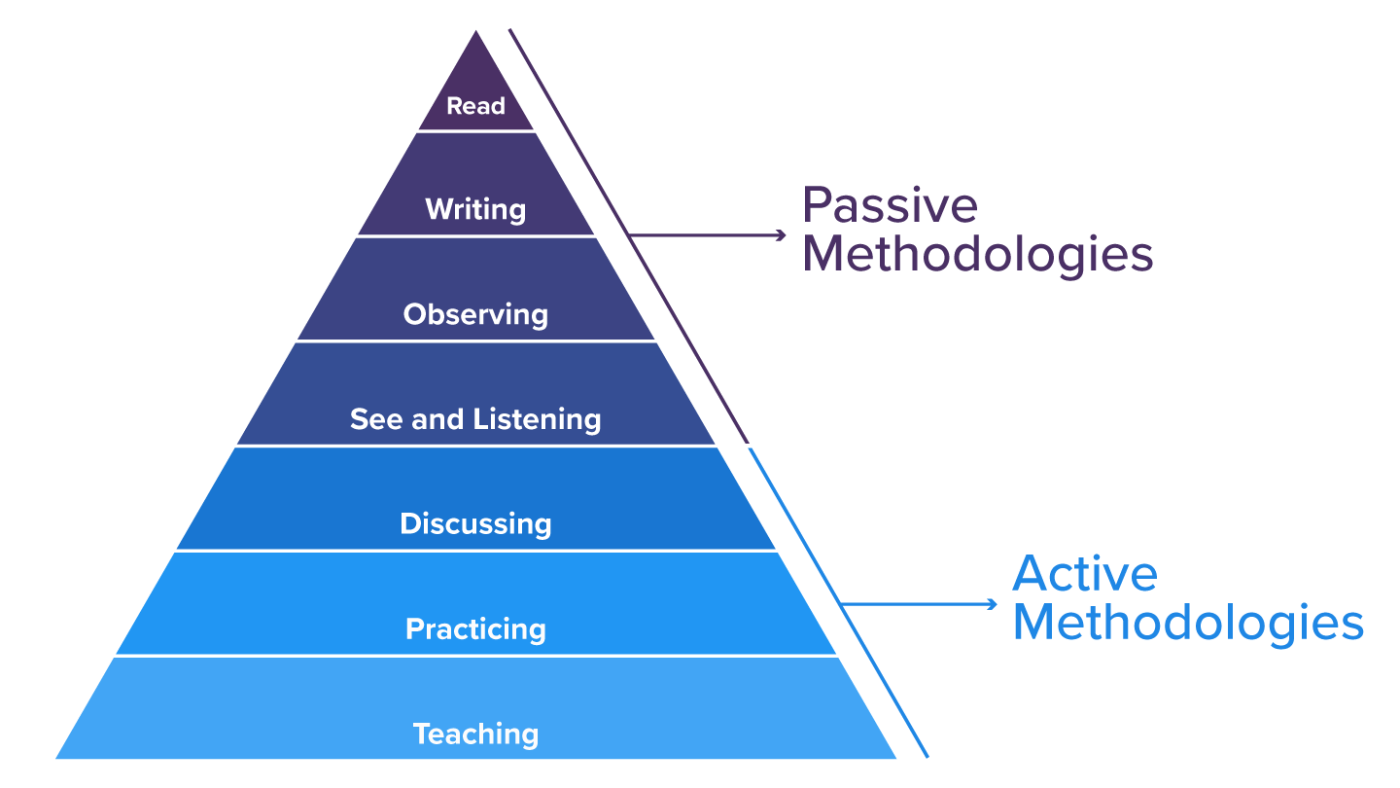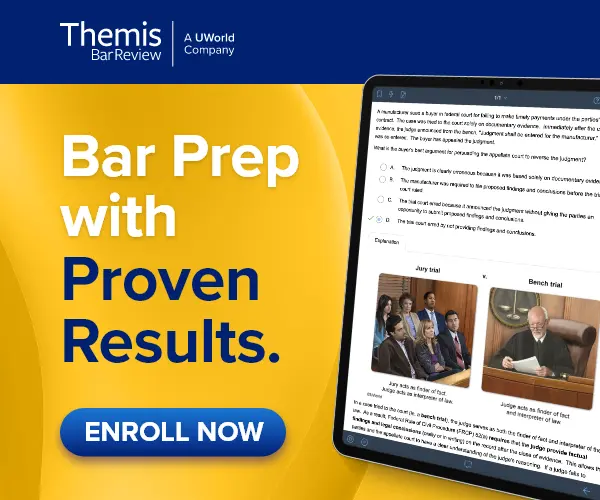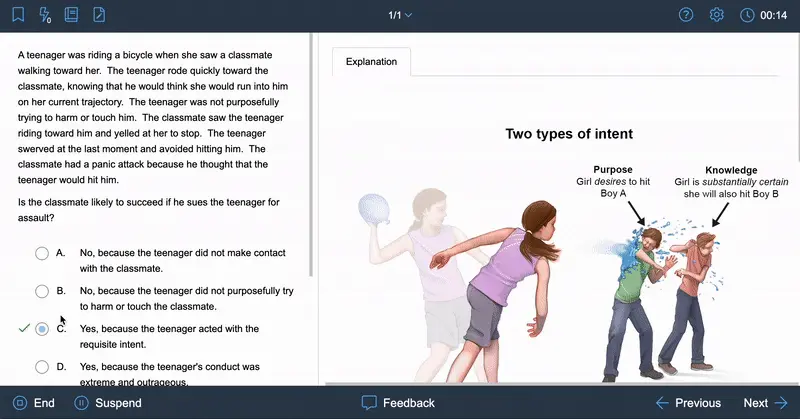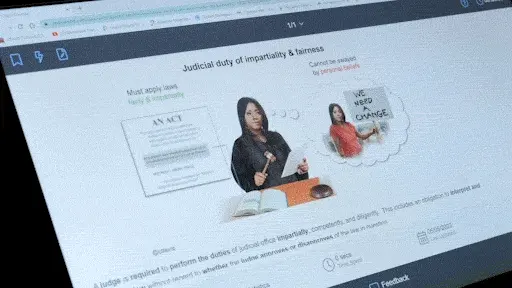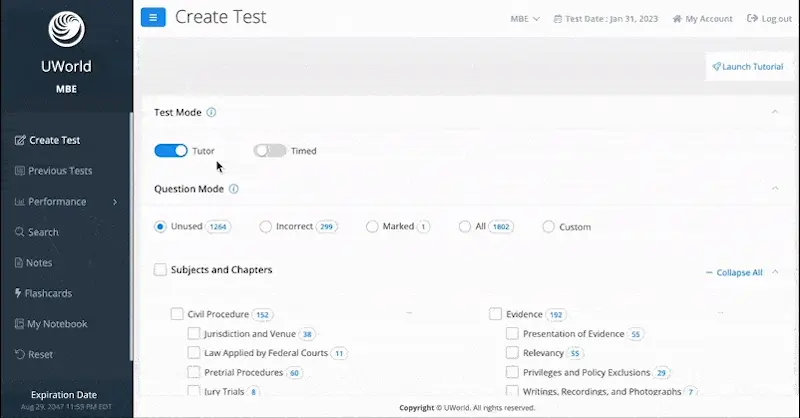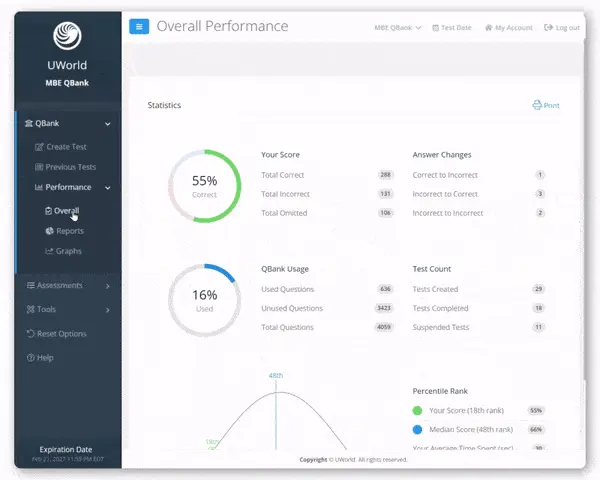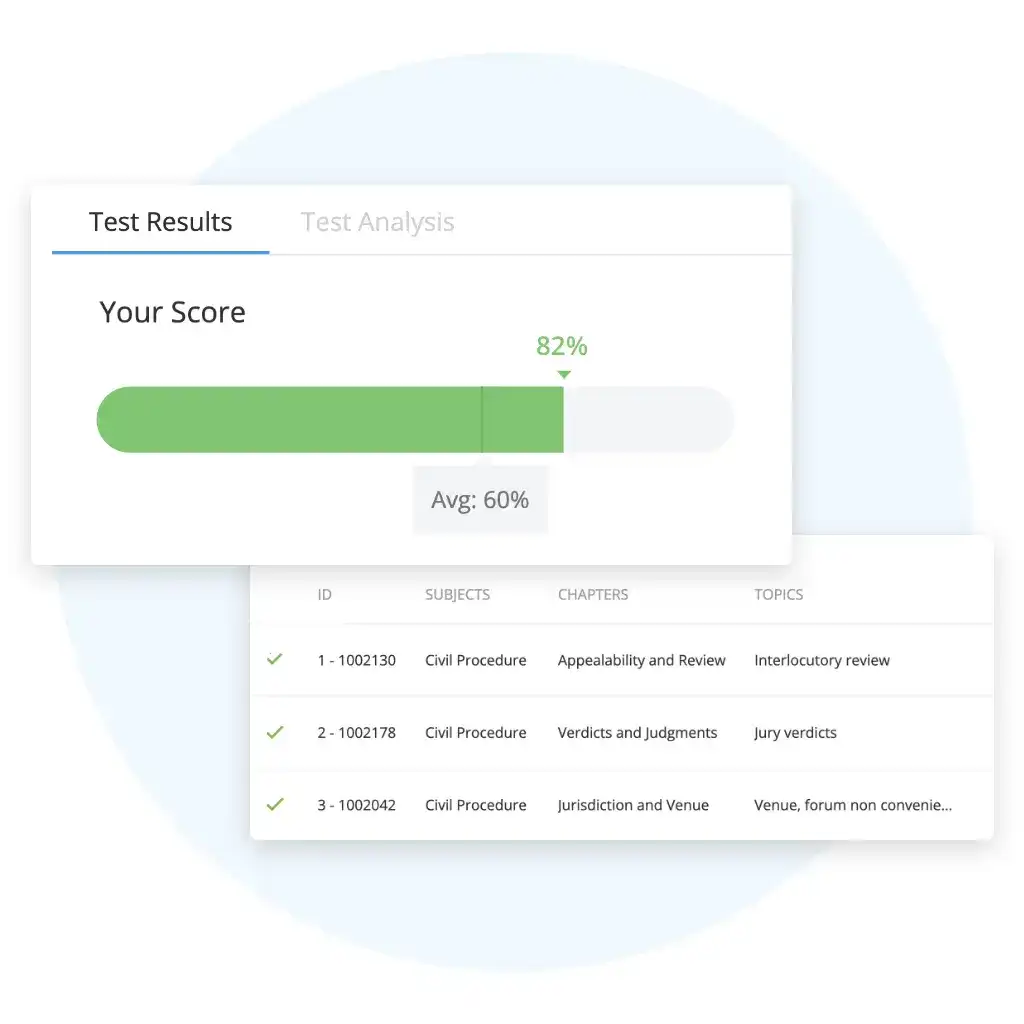Active learning means you don’t just listen, read, or watch — you practice, solve problems, test yourself, and apply knowledge every step of the way. Decades of research show that students who engage actively with material consistently outperform those who study passively, especially in high-stakes fields such as law.1, 2
That’s why we’ve built active learning into everything we do.
Why Active Learning Matters in Legal Education
Legal education demands more than memorization. It requires you to analyze, apply, and adapt complex information under pressure. Traditional passive study methods, such as rereading casebooks or watching lectures, often create an illusion of understanding without building the deeper skills needed for law school success or bar exam performance.
Active learning flips the process: By engaging directly with the material, applying concepts in real scenarios, and continuously practicing retrieval, you strengthen your knowledge and legal thinking.
Active learning gives you a real advantage:
- Stronger retention of legal principles and procedures3
- Higher admission exam, law school, and bar exam scores4
- Sharper critical thinking and application skills5
- Reduced test anxiety through familiarity and practice6
- Faster progress through targeted, adaptive feedback7
Active learners don’t just recognize the law — they know how to think like lawyers.
Real Results: Proof That Active Learning Works
Themis Bar Review, a UWorld company, is the only national bar review company that routinely publishes its first-time taker pass rates. And, the outcomes speak for themselves:
- Students who complete 75% or more of active-learning coursework (UWorld/Themis) achieve 90%+ first-time bar pass rates.⁸
- Active study strategies correlate with higher law school GPAs and bar passage success.⁴,⁵
- Schools implementing active learning have dramatically increased bar passage rates.⁹
How UWorld Legal Integrates Active Learning
Active learning isn’t an add-on at UWorld Legal — it’s the core of our approach. Every program is structured around doing, learning, and mastering rather than passive review. We prioritize a practice-first design that helps you learn by doing.
We stand apart as the active learning leader in legal education with actionable feedback after every question, adaptive learning tools tailored to your performance, and a proven track record of success across admission, law school, and bar prep. We help you develop deep legal skills, not just surface knowledge.
Learn by Doing
Thousands of exam-level questions sharpen analysis and recall.
Immediate Feedback
Detailed answer explanations teach you “why” — not just “what.”
Visual Learning
Infographics, charts, and illustrations promote a deeper understanding.
Spaced Repetition
Intelligent question sequencing reinforces memory over time.
Application > Memorization
Real-world problem-solving trains you to think like a lawyer.
Adaptive Learning Tools
Track performance, create flashcards, and customize your practice.
Learn by Doing
Thousands of exam-level questions sharpen analysis and recall.
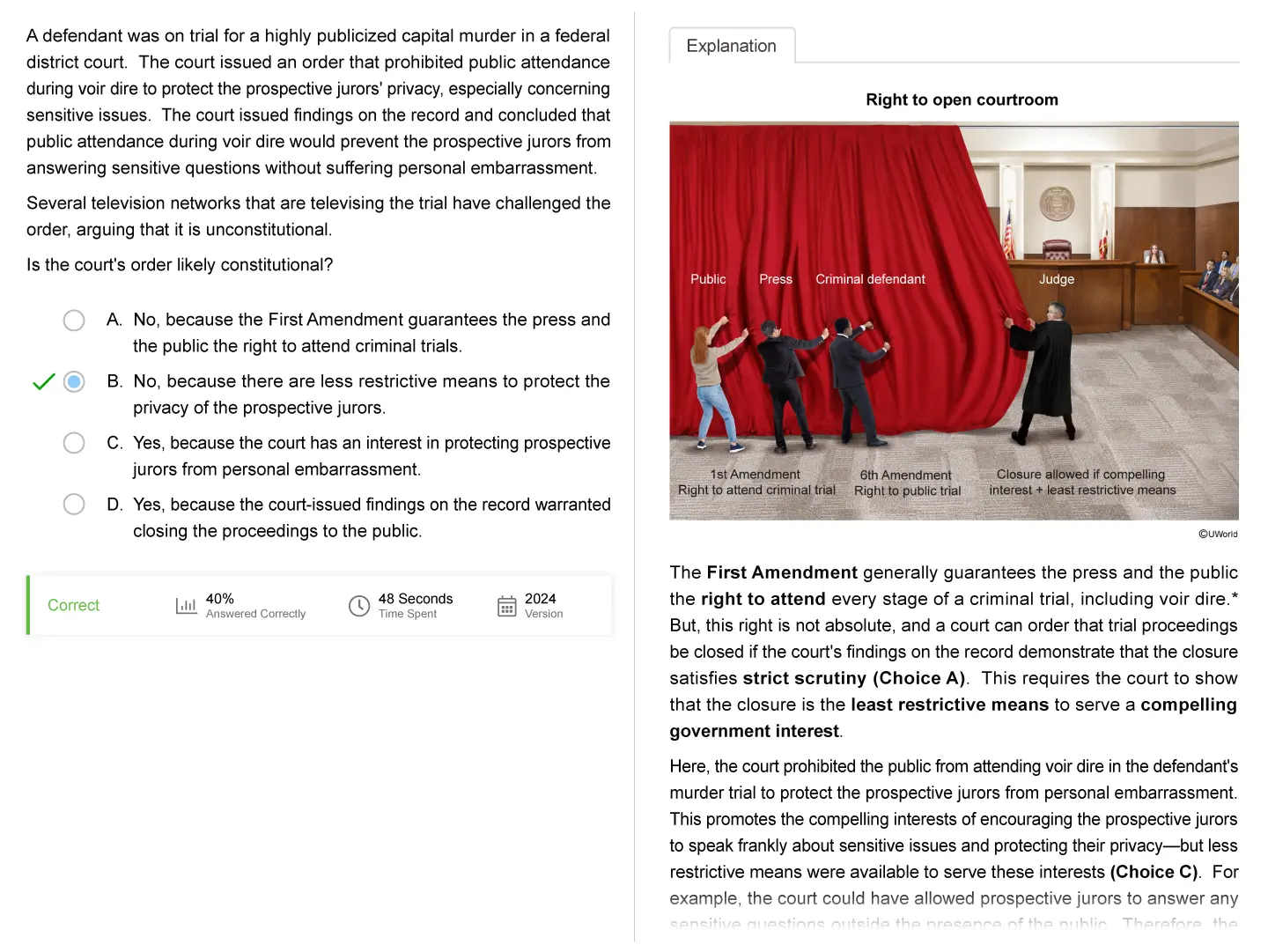
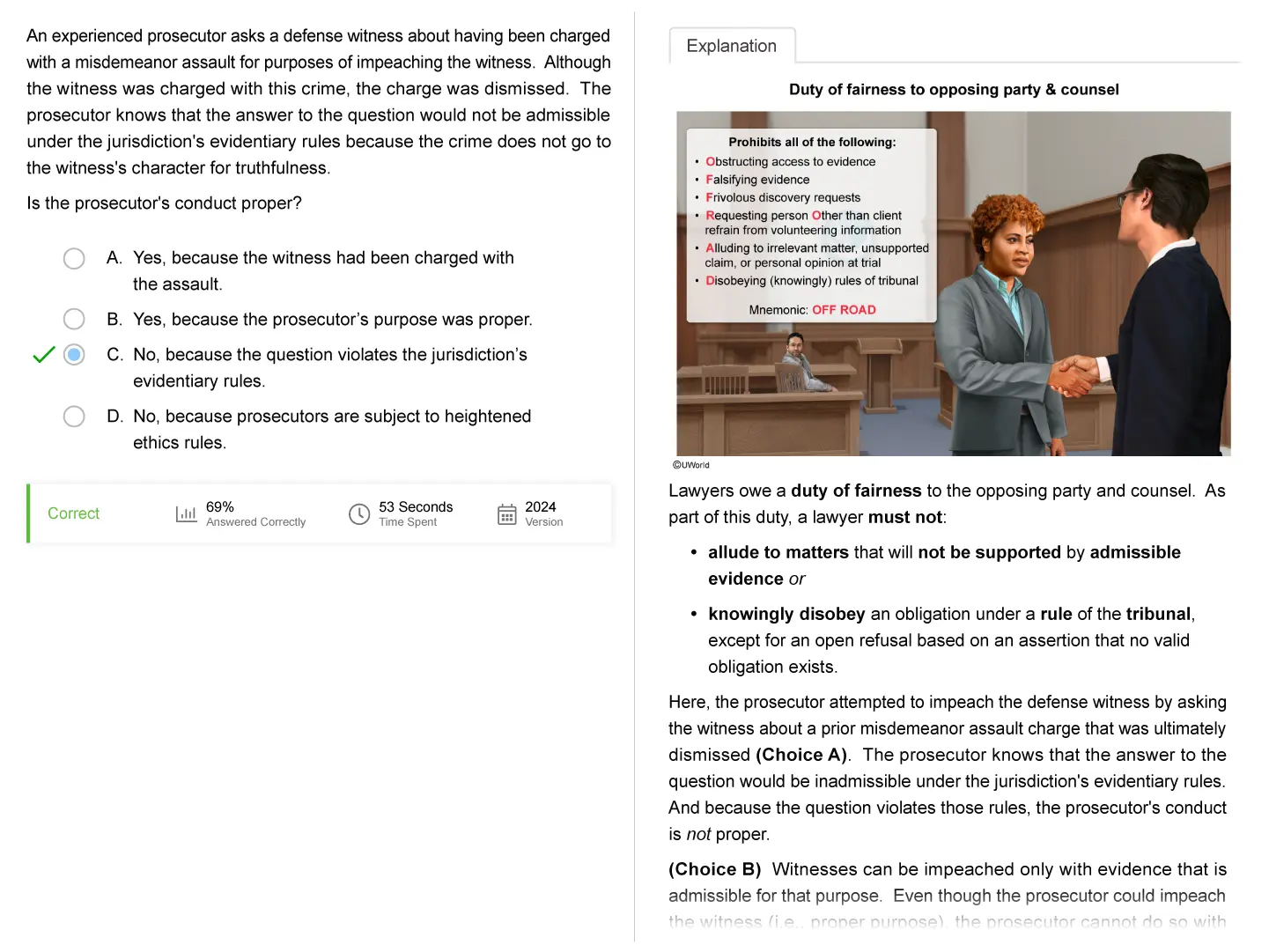
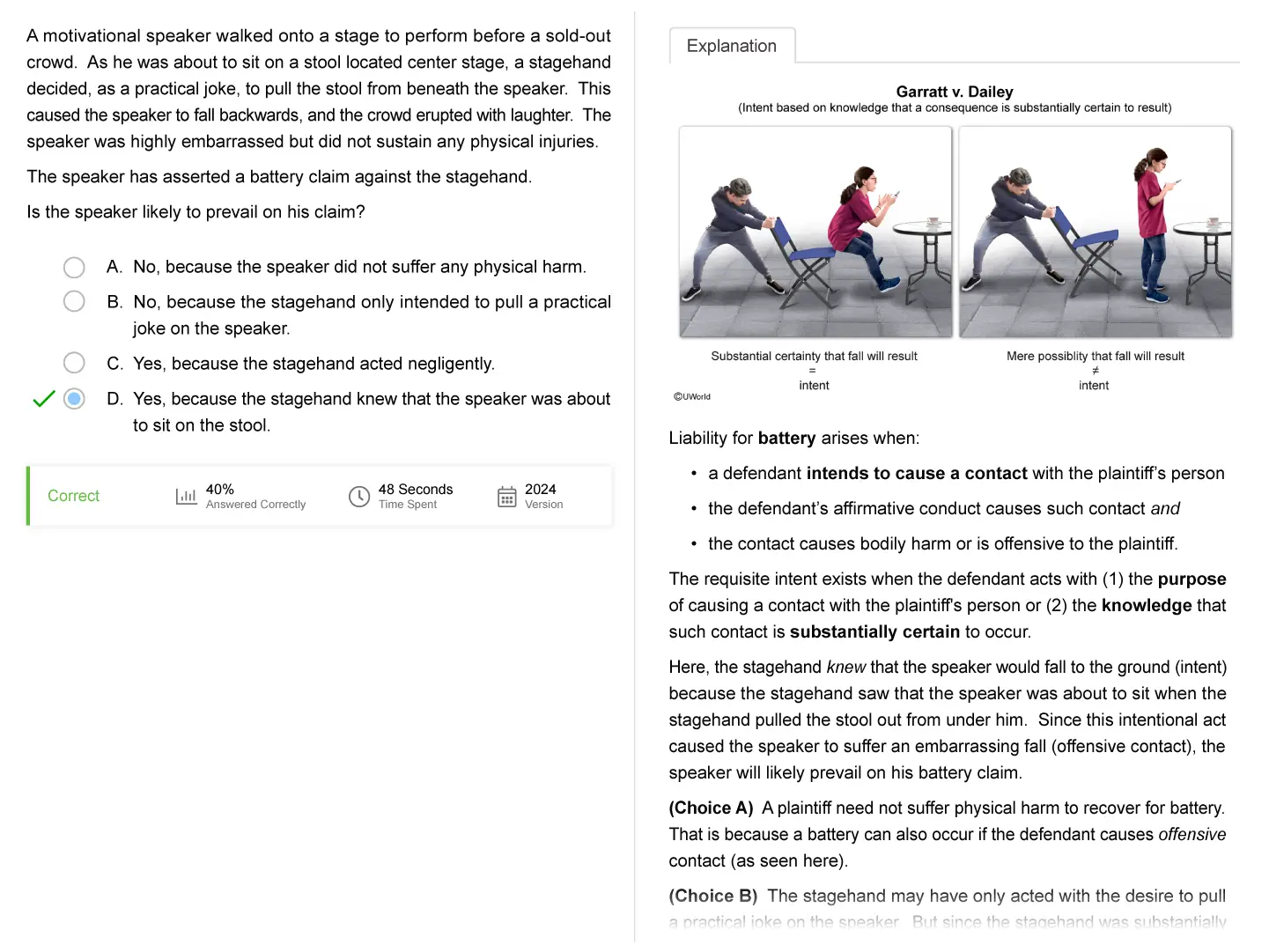
Immediate Feedback
Detailed answer explanations teach you “why” — not just “what.”
Visual Learning
Infographics, charts, and illustrations promote a deeper understanding.
Spaced Repetition
Intelligent question sequencing reinforces memory over time.
Application > Memorization
Real-world problem-solving trains you to think like a lawyer.
Adaptive Learning Tools
Track performance, create flashcards, and customize your practice.
Ready to Master Legal Learning?
Don’t just study law — live it. Join the thousands of students mastering the law with UWorld Legal’s active learning approach and set yourself up for success at every step of your journey.
References (Footnotes)
- Freeman, S. et al. (2014). Active learning increases student performance in science, engineering, and mathematics. Proceedings of the National Academy of Sciences.
- Dunlosky, J. et al. (2013). Improving Students’ Learning With Effective Learning Techniques: Promising Directions From Cognitive and Educational Psychology. Psychological Science in the Public Interest.
- Roediger, H. L., & Butler, A. C. (2011). The critical role of retrieval practice in long-term retention. Trends in Cognitive Sciences.
- Cooper, J. & Gurung, R. (2018). Smarter Law Study Habits: An Empirical Analysis. St. Louis University Law Journal.
- Brown, P. C., Roediger, H. L., & McDaniel, M. A. (2014). Make It Stick: The Science of Successful Learning. Harvard University Press.
- Agarwal, P. K., & Bain, P. M. (2019). Powerful Teaching: Unleash the Science of Learning. Jossey-Bass.
- Cepeda, N. J. et al. (2006). Distributed practice in verbal recall tasks: A review and quantitative synthesis. Psychological Bulletin.
- Themis Bar Review (2022). Themis Annual Pass Rates and Results.
- Schulze, L. (2019). Using Science to Build Better Learners: FIU’s Successful Efforts to Raise Bar Passage. Journal of Legal Education.
